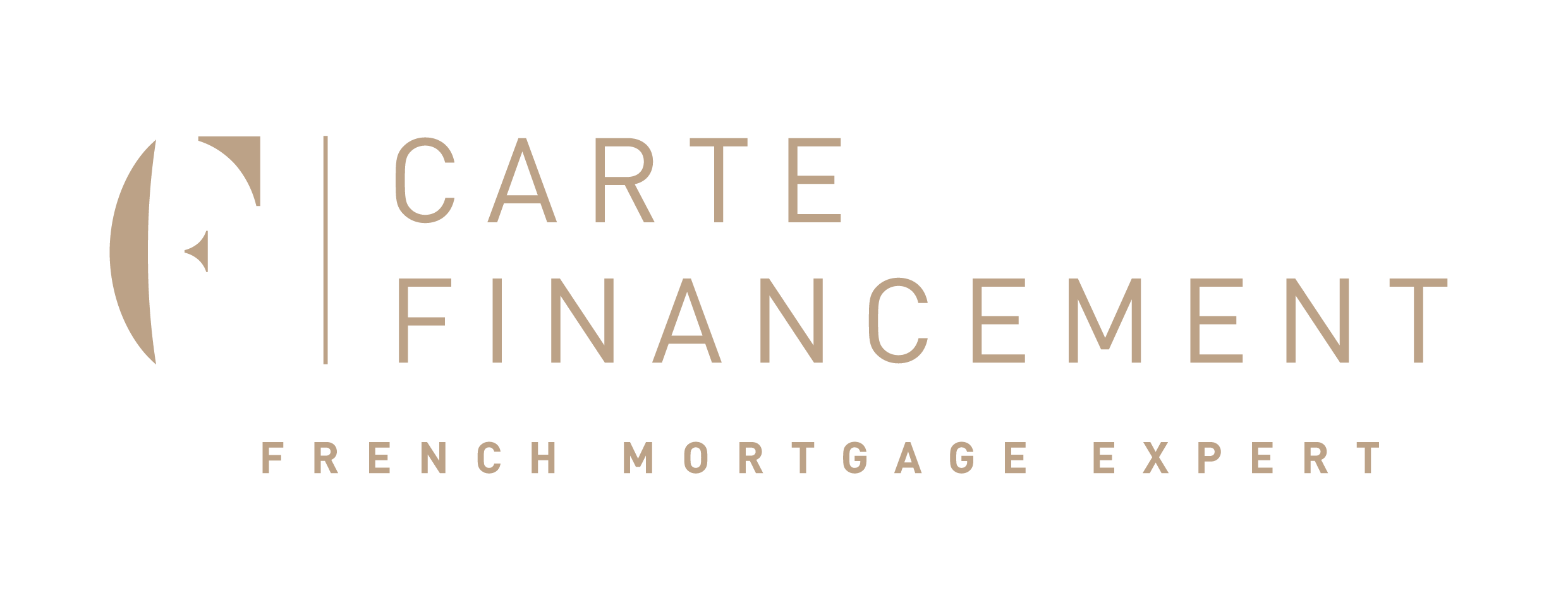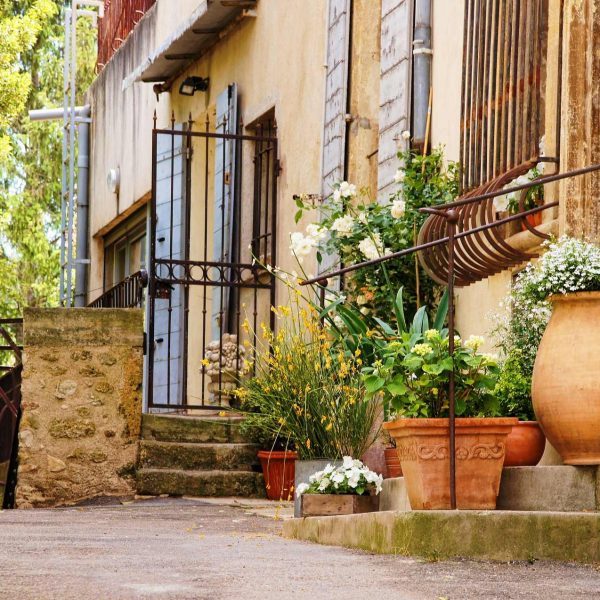Budget Decision
Evaluate Your Borrowing Power for Your French Property
The first step to purchase your French property is to find out how much you can borrow with French banks so you can then spot the right property. A mortgage broker within our team will assist you to establish your eligibility with a panel of French lenders
In simple terms, French lenders allow you to borrow money up to a certain amount by calculating a debt ratio.
This means that your monthly outgoings (current & future French mortgage payments, rent) should not exceed 33% of your monthly incomes (salary/profits, rental income). For example, if your monthly outgoings are 1,000€, you should earn a minimum of 3,000€ per month.
Day to day expenses, such as food bills, utility bills, council tax, are usually not included in the calculation.
Although the concept is simple, each situation can vary. For example “high earners” customers, or depending on your existing assets, some lenders accept to increase the debt ratio up to 40%.
Depending on your country of residence, the lender will decide on the loan to value which is typically 80% of the property value.
As for the debt ratio, the loan to value can vary up or down according to your situation.
The loan to value will determine your personal contribution to the project. In this case: 20% of the property value plus the fees.
Our experimented team will analyze each personal situation to determine the right lender for your project and maximize your borrowing power.
Property Decision
French Property Hunting
Once you have a budget in mind, you are ready for the French property hunting!
Whether it is an apartment in Paris, a chalet in the Alps, a property in the countryside or a villa on the cost, our network includes the best national and local lenders to make sure we provide you the best rates and conditions for your purchase.
In terms of researching for a French property, there are two main options. The first one is to go through a French real estate agent (“ agent immobilier”). The advantage with this option is that they will have a large number of properties available and will gain knowledge about a specific region. Some of them can also be able to answer in English questions that you might have on the French property – which can be convenient if the owner does not speak English and if you have not begun your French lessons!
French estate agents will charge a fee (usually 5% of the property price) which is payable either by the seller or by the buyer, depending on what is stated on the contract.
The other option is to buy directly through an individual. Some websites or newspapers are specialized in this type of sales and offer properties sold through individual only.
Once you have found the property of your dreams and made an offer, the next step will be getting in contact with a French notary to obtain the deed of sales (“compromis de vente”).
Sale’s Promise
French Notary’s Preliminary Contract
In France a notary is a public official who is responsible for preparing the preliminary contract call the “compromis de vente”, and guarantees his morality and validity. Each party (seller & buyer) have their own notary and you will receive the “compromis de vente” from them.
The contract is binding for each party and the buyer pays a deposit of 5 to 10% of the property price, which remains blocked on the notary’s account until the completion of the sale.
After signing the “compromis de vente”, the buyer has 7 days to cancel the sale without having to give a reason. Passing those 7 days, a cancellation from the buyer will result in the loss of the deposit.
A clause in the “compromis de vente” mentioning that you require a French mortgage to complete the process will also give you the opportunity to cancel the sale and get a refund of your deposit if you can provide the proof that your mortgage application was declined by lenders.
The clause usually gives you 45 days to get a mortgage or to give a proof of refusal.
The “compromis de vente” includes everything you should know about the French property and therefore it might be a good option to seek advice from a lawyer in your country of residence who has knowledge in French law to make sure you understood clearly the contract.
Mortgage Application – Timeline
Day 1 – Decide on Mortgage Type
Our advisers will help you to find the most suitable mortgage product you require.
French mortgage are tailored to maximize security for the consumer. Therefore most of the mortgages are available with fixed or capped rate over a long term period.
Variable rates – usually tracker rates indexed on the European indexed rate “Euribor 3 month” – also offer security should the rateincrease as the monthly payments increase is capped to French inflation rate. Instead of increasing the monthly payments, the duration of the French mortgage will vary accordingly.
The French law offers you further protection with the right to switch a variable or capped rate to a fixed rate at any time.
Day 2 – Gather French Mortgage Application Documents
Once you have chosen a French mortgage option, your adviser will email you a French mortgage application form and the list of documents required by the lender to support your application.
Although this stage usually takes about 2 weeks, it can be done in a couple of days depending on your ability to provide the documents quickly.
Day 15 – Reception of Your File
At reception of your documents, your French mortgage broker will review your file and give you a feedback to let you know if extra documents are required or if your file can be sent to the lender.
Day 21 – Bank Analysis of Your File
A bank underwriter will analyze your file and contact our team if they need further information. Extra documents might be required by the bank underwriter at this stage.
Day 35 – Bank Agreement & Life Insurance
Once the underwriter gives the agreement for your French mortgage application, you will need to complete a life insurance application.
Aiming at protecting costumers, French system obliges to assign a life insurance to the French mortgage, which will then be fully repaid in case of death.
An initial medical questionnaire with be sent by your adviser. Depending on answers, age and French mortgage amount, some medical exams might be required. Medical exams fees can be partly reimbursed by the insurance company providing the protection.
Day 40 – Reception of the Mortgage Offer
At completion of the above steps, the French mortgage offer will be issued, and you will be sent two copies by DHL: one to return to the lender and one for your records.
Our adviser will review it with you to make sure that everything is clear for you.
Day 51 – Signature of The French Mortgage Offer
Two dates are important with regards to the French mortgage offer:
- The 11 days cooling off period set up by French law which means that from the reception of the offer you need to way 11 day to accept it and post it back to the lender.
- The French mortgage offer is valid 30 days thus it needs to be sent back within a month to the lender.
Day 51 – French Bank Account & Transferring Funds
In order to pay the monthly installments of your French mortgage, you will be required to open a French bank account and set up a direct debit. Banks usually charge a fee (4 to 10€ p/m) to provide an account and this includes internet banking, debit card and cheque book.
They will also ask for a small amount of paperwork which we will already have from your Some lenders require you to open a bankaccount with them, otherwise you can chose one of your choice, or we can recommend one to you.
Using a currency broker might be easiest – and probably the cheapest – way to transfer funds on your French bank account from overseas.
The exchange rate will be lower and can fix it for a certain period and a direct debit from your overseas account will be set up to fundthe French. You will then not have to worry about making transfers each month.
This stage is usually done during the French mortgage application, and you will be required to send a direct debit form with your French bank account details to the lender together with your French mortgage offer acceptance.
Day 60 – Completion
At reception of your French mortgage offer acceptance, the bank will contact your notary who will be in charge of registering the French mortgage to complete the purchase.
The notary will contact you to confirm the exact amount of personal contribution that you should transfer on his account to complete the transaction, and you will then be able to set a meeting with him to sign the deed.
One Final Step
Prepare the Champagne!


